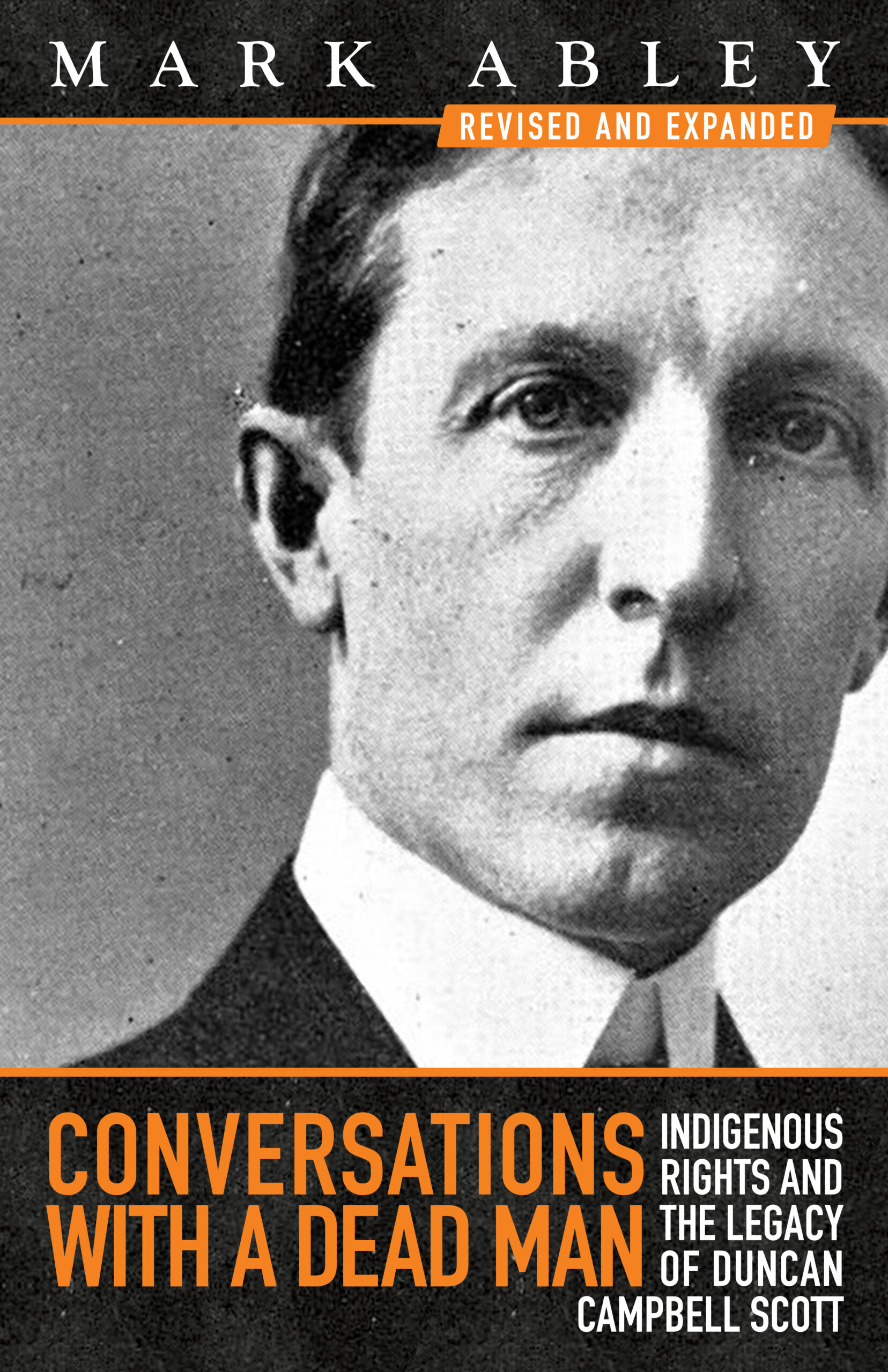Conversations with a Dead Man: Indigenous Rights and the Legacy of Duncan Campbell Scott
A revised, updated and improved edition of a book originally published in 2013. I’m happy that Stonehewer Books wanted to bring it back into print, and very happy that it’s finally available in a paperback format (and an ebook too).
In 2025 the book was shortlisted for a Fordword Indies prize, honouring the best writing from independent and scholarly presses across North America.
“Abley has produced something seemingly inconceivable: an intelligent, absorbing and, yes, entertaining book about an infamous Canadian villain who oversaw residential schools at the height of their brutality toward Aboriginal peoples. Abley is a poet, which makes him the perfect biographer of another poet, Duncan Campbell Scott, who happened to have had a day job for over 50 years in the Department of Indian Affairs … Abley resists the urge to discard Scott as a racist imbecile. The villain was a man, and his nation is our nation. Abley’s act of radical empathy makes it harder to turn the page on a chapter of our history we might otherwise slam shut.”
Andrew Stobo Sniderman, Maclean’s
“Compelling … creative … probing … One can’t help but keep turning the pages, wanting desperately, like Abley, to gain clarity on Scott’s actions. Commendably, Abley has addressed a highly charged question in a balanced, compassionate manner. By considering Scott’s plausible role as a scapegoat and comparing him to his contemporaries, he contextualizes the civil servant’s vision, yet never condones it, maintaining a critical eye throughout. All this he does with utmost regard for Canada’s First Nations.”
Kimberly Bourgeois, Montreal Review of Books
“Resurrecting Scott in the pages of the book involved having his lifelike ghost materialize at random intervals in the author’s present-day home. Intent on restoring his posthumous reputation, he’s visible and audible only to his host, who gets drafted into the role of an extremely skeptical Boswell; highly charged and brilliantly rendered conversations ensue. A potentially gimmicky device turns out to be an ingenious choice, drawing the reader into a subject that might otherwise have looked like impossibly heavy going.”
Ian McGillis, Montreal Gazette
—
From Stonehewer’s description: “With intelligence, moral ferocity, and a hunger for truth, Abley delves into Scott’s professional and personal lives while also exploring the hostile government policies — including the residential school system — that damaged and continue to damage the lives of hundreds of thousands of Indigenous people.”
—
“I love this book. I love the idea that Mark Abley wants answers from Scott. Why did he write such lovely, romantic and paternalistic poetry and prose about Indians? Why was a civilized, educated, refined artist developing, fine-tuning, enacting and enforcing such horrendous policies and laws that violated every religious, moral and ethical sensibility? Abley brings weight and dimension to Scott. I heard his words and understood his passions. In the end, I saw a pitiable man. A shadow of a man. Thanks to Abley, he was no longer a cardboard figure to me, representing all that was and is wrong with Canada and its Indian policies.”
Daniel David (Mohawk), journalist, broadcaster, writer
“As Canadian biography deepens as a form, it will need books as intrepid, incisive and compassionate as this one, and before long Conversations with a Dead Man may be seen as pioneering.”
Charles Foran, author of Mordecai
“Mark Abley has undertaken a daunting task: reconciling the Duncan Campbell Scott whose pen inscribed the cultures of Canada’s First Nations in justly celebrated verse, and the same Duncan Campbell Scott who, as the overseer of residential schools and head of Indian Affairs, attempted to erase those same cultures from the pages of history. Abley, a fine poet himself, turns Scott, the bogeyman, into a man of flesh-and-blood, by—in a fine twist—making him into a revenant to be grappled with in regular visitations. The conceit works admirably. Reading Conversations with a Dead Man, I felt as if I had been waylaid, not by a dour Ottawa bureaucrat, by an Ancient Mariner with the most urgent of tales to tell.”
Taras Grescoe, author of Straphanger

